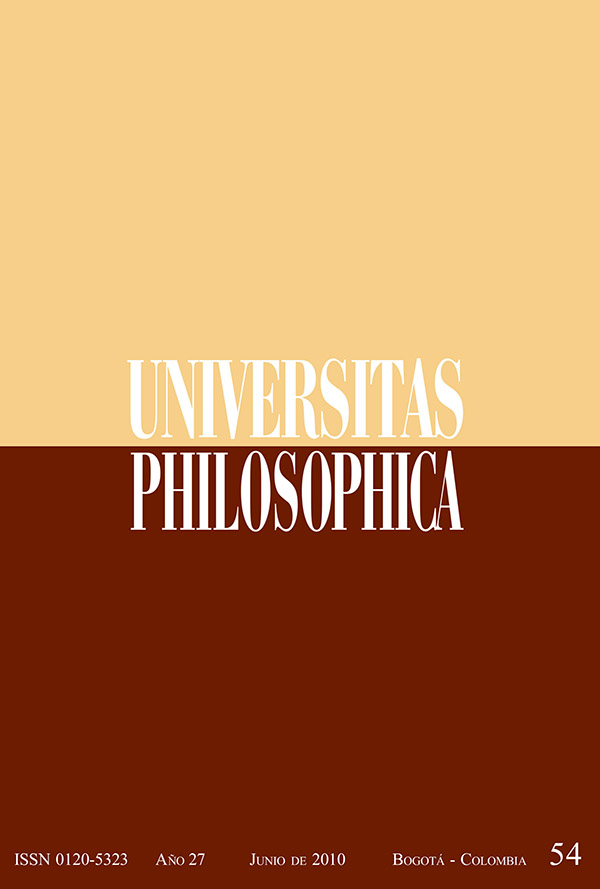Abstract
At the end of Nicomachean Ethics Aristotle establishes a direct relation between εὐδαιμονία and the activity of theoretical contemplation. According to Thomas Nagel, that situation originates two interpretative perspectives of εὐδαιμονία: a comprehensive account and an intellectualist one. The last one determines εὐδαιμονία as the activity of the most divine part of man as a result of theoretical contemplation. On the other hand, the comprehensive account involves the full range of human life and action. This paper argues in favor with the importance of considering εὐδαιμονία as a result of an ethical, political, economical and sociological viewpoint throughout Nicomachean Ethics. While this essay recognizes elements to support the intellectualist perspective, it considers if we defend it, an interpretation where Aristotle's practical reason turns to the metaphysical position in Plato's ethics will follows as a consequence.
This journal is registered under a Creative Commons Attribution 4.0 International Public License. Thus, this work may be reproduced, distributed, and publicly shared in digital format, as long as the names of the authors and Pontificia Universidad Javeriana are acknowledged. Others are allowed to quote, adapt, transform, auto-archive, republish, and create based on this material, for any purpose (even commercial ones), provided the authorship is duly acknowledged, a link to the original work is provided, and it is specified if changes have been made. Pontificia Universidad Javeriana does not hold the rights of published works and the authors are solely responsible for the contents of their works; they keep the moral, intellectual, privacy, and publicity rights.
Approving the intervention of the work (review, copy-editing, translation, layout) and the following outreach, are granted through an use license and not through an assignment of rights. This means the journal and Pontificia Universidad Javeriana cannot be held responsible for any ethical malpractice by the authors. As a consequence of the protection granted by the use license, the journal is not required to publish recantations or modify information already published, unless the errata stems from the editorial management process. Publishing contents in this journal does not generate royalties for contributors.


